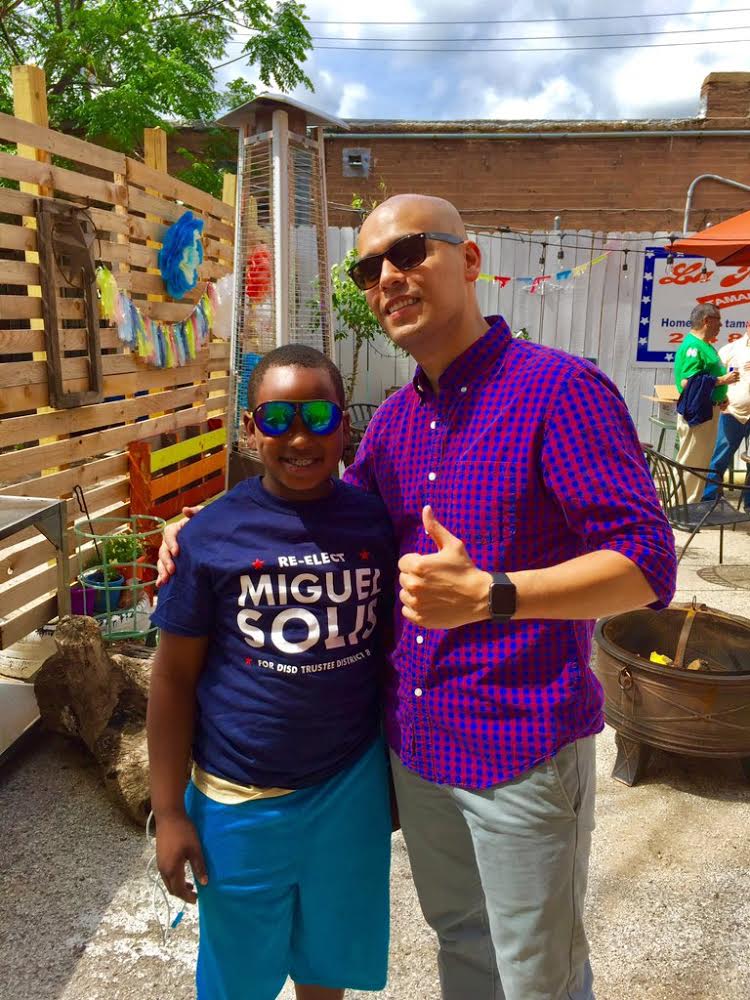One day after the Dallas Independent School District’s board failed to get the votes to ask residents for a tax increase for at-risk schools, trustee Miguel Solis sat on a panel of arts advocates to discuss other challenges that hold students back. In a district with the third-lowest funding in the region, scarce resources could be put toward innovative approaches to learning, but are spent instead on the scourge of standardized testing, he argued.
“What it has become now is an education system that has led us to rote memorization, an education system that has created far too much emphasis on testing, and we begin to lose the soft skills that are necessary to provide a holistic education for kids,” Solis said. “Grit. Determination. How to have a basic conversation with another human being.”
The Youth in Arts Panel, held last Saturday at the Dallas City Performance Hall, was organized to make a compelling case for the arts as a key civic issue and an important factor in student achievement within Dallas ISD.
The Texas educational system, like much of the nation, de-prioritized the importance of arts and humanities over the last four decades and turned to a more mechanical approach to education. Solis traced the roots of our test-obsessed school model back to the infamous Reagan-era report entitled “A Nation at Risk,” which called for standardization and quantitative measures of student mastery. Many years and failed educational policies later, we’re left with a lopsided approach to learning.
Solis, though, brought a message of change, highlighting the district’s efforts to correct the imbalance, like district-wide investments in socio-emotional skills to prepare students for the future. Other panelists were examples of the type of success that can come with making the arts an educational priority. Julienne Penza-Boone, director of arts at the Westhampton Beach Performing Arts Center in New York, underscored how the arts are uniquely positioned to prepare students for an unsure economy.
“We hear that everything is going to be automated in the future,” Penza-Boone said. “So we’d better be preparing our kids to have those skills that robots won’t have.”
Highly adaptive people have always thrived in the workforce, including panelist Lily Cabatu Weiss, a former dancer and school administrator at Booker T. Washington High School for the Performing and Visual Arts, who is now the executive director of the Dallas Arts District. Weiss spoke about how artistic discipline equipped her for multiple industries, and thinks young creatives will experience similar benefits. “I wholeheartedly believe that everything that these students learn in and through the arts prepares them for any job. They will be articulate. They will be passionate. They will persist and persevere. And they will re-strategize until policies are changed.”
Weiss hit on an important point about the role of the arts in changing policies and ideas. For progressive societies, she contended that it isn’t often the data scientists who spur revolution, but the creators, dreamers, and entrepreneurs.
As Solis reminded the audience, “Remember it was a young woman who refused to give up her seat to move to the back of the bus. It was a young preacher who rallied people for the Montgomery bus boycott. It was young people who sailed across the Atlantic to fight fascism.” In fact, Solis told the audience that the masterminds behind the record-breaking Frida Kahlo dress-alike event at the Dallas Museum of Art were two undocumented Dreamers.
While references to cultural equity are sometimes dismissed as liberal-ese, the panelists skillfully explained how equal access to the arts is really about creating better citizens and humans. If we want Dallas to remain a city guided by innovation, we must raise up people who can navigate the politics of a complex workforce and increasingly unpredictable nation. The arts, offered widely and equally enough, might just be the best tool to get the job done—a glimmer of optimism even in the face of a public education system that sometimes seems hopelessly stuck in the mud.





